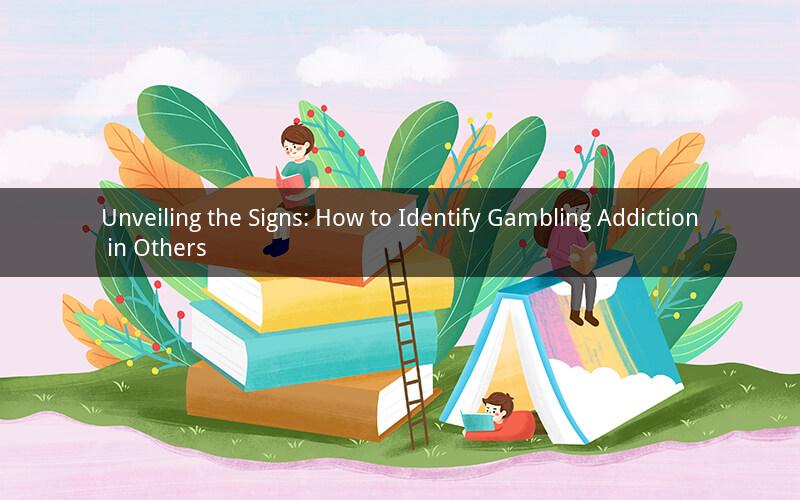
Introduction:
Gambling addiction, also known as problem gambling, is a serious condition that affects individuals, families, and communities. Identifying the signs of gambling addiction is crucial for early intervention and support. In this article, we will explore various indicators that can help you determine if someone you know may be struggling with gambling addiction.
1. Unusual Behavior Changes:
One of the first signs of gambling addiction is a noticeable change in behavior. Look out for the following behaviors:
a. Secretive behavior: The individual may start hiding their gambling activities, lying about their whereabouts, or becoming increasingly secretive.
b. Financial difficulties: Excessive gambling can lead to significant financial problems. Look for signs of unpaid bills, missing money, or borrowing money frequently.
c. Mood swings: Gambling addiction can cause mood swings, including irritability, anxiety, and depression. Pay attention to sudden changes in the person's emotional state.
2. Time and Money Spent on Gambling:
An individual with gambling addiction may exhibit the following patterns:
a. Spending excessive amounts of time on gambling activities: They may frequently visit casinos, online gambling sites, or betting shops, often neglecting their responsibilities.
b. Borrowing money: They may borrow money from friends, family, or financial institutions to fund their gambling habits.
c. Missing work or school: The individual may skip work or school to engage in gambling activities, leading to a decline in their performance.
3. Relationship Struggles:
Gambling addiction can strain relationships with family, friends, and colleagues. Look for the following signs:
a. Isolation: The individual may withdraw from social activities and become increasingly isolated.
b. Arguments and conflicts: Financial problems and mood swings caused by gambling addiction can lead to frequent arguments and conflicts with loved ones.
c. Divorce or separation: In severe cases, gambling addiction can lead to the breakdown of marriages or long-term relationships.
4. Physical Symptoms:
Gambling addiction can also manifest in physical symptoms. Pay attention to the following:
a. Insomnia: Excessive gambling can disrupt sleep patterns, leading to insomnia.
b. Nervousness or anxiety: The individual may experience increased nervousness or anxiety, especially when they are not gambling.
c. Health problems: Prolonged gambling can lead to stress-related health issues, such as high blood pressure or heart problems.
5. Denial and Rationalization:
Individuals with gambling addiction often deny their problem and rationalize their behavior. Look for the following signs:
a. Denial: They may deny having a gambling problem, claiming it is just a hobby or a way to relieve stress.
b. Rationalization: They may justify their gambling habits by blaming others, claiming they deserve the money, or believing they can control their gambling.
Conclusion:
Identifying gambling addiction in others is crucial for providing support and intervention. By recognizing the signs of unusual behavior changes, excessive time and money spent on gambling, relationship struggles, physical symptoms, and denial, you can help someone struggling with gambling addiction seek the necessary help and support.
Questions and Answers:
1. What are the common reasons why someone might develop a gambling addiction?
Gambling addiction can be caused by various factors, including genetic predisposition, mental health issues, and environmental influences such as exposure to gambling activities.
2. How can I approach someone I suspect has a gambling addiction?
When approaching someone you suspect has a gambling addiction, it is important to be non-judgmental and supportive. Express your concerns and offer help without pressuring them to admit their problem.
3. Can gambling addiction be treated?
Yes, gambling addiction can be treated. Treatment options include therapy, counseling, support groups, and in some cases, medication. Early intervention is crucial for successful recovery.
4. What role do family and friends play in supporting someone with a gambling addiction?
Family and friends play a vital role in supporting someone with a gambling addiction. They can provide emotional support, encourage treatment, and help create a supportive environment for recovery.
5. Is there a difference between problem gambling and gambling addiction?
Yes, there is a difference. Problem gambling refers to any gambling behavior that causes distress or harm, while gambling addiction is a severe form of problem gambling characterized by compulsive and uncontrollable gambling behavior.